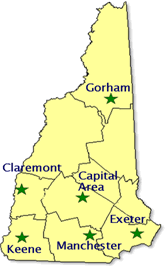Division of Instruction
NHEON :: Office
of Ed Tech :: No Child Left Behind
No Child Left Behind: Title II Part D
|
||||||||||||||||||||||||||||||||||||||||||||||||||||||||||||||
|
With the passage of the No Child Left Behind Act in January 2002, a program was established within Title II Part D to provide federal funding to schools for educational technology. This program is called Enhancing Education Through Technology (E2T2). You will find links to information about current year funding in the table below. Information from previous years (2002-03 through 2009-10) may be found on the archives page. Note: The 2011 Round was the last round of Title IID funding NH received. Funds can still be transferred into Title IID for Technology projects. Funds transferred into theTitle IID program are subject to the requirements and allowable activities of the Enhancing Education Through Technology Program. Reauthorization of the Elementary and Secondary Education Act (ESEA) or No Child Left Behind (NCLB) may return funding to support educational technology in some form.
|
||||||||||||||||||||||||||||||||||||||||||||||||||||||||||||||
|
||||||||||||||||||||||||||||||||||||||||||||||||||||||||||||||
|
Last updated
12/10/2015
|
||||||||||||||||||||||||||||||||||||||||||||||||||||||||||||||

